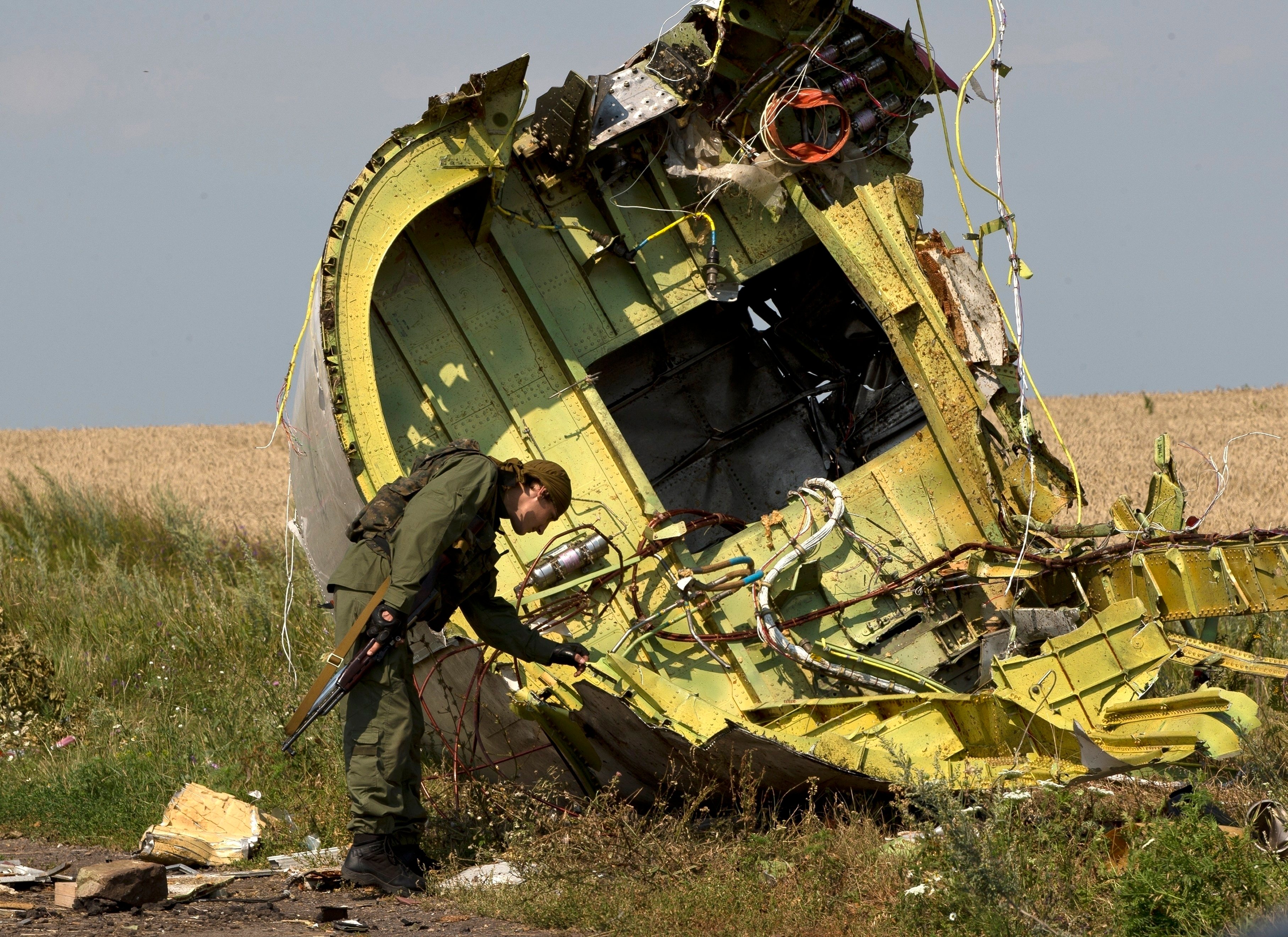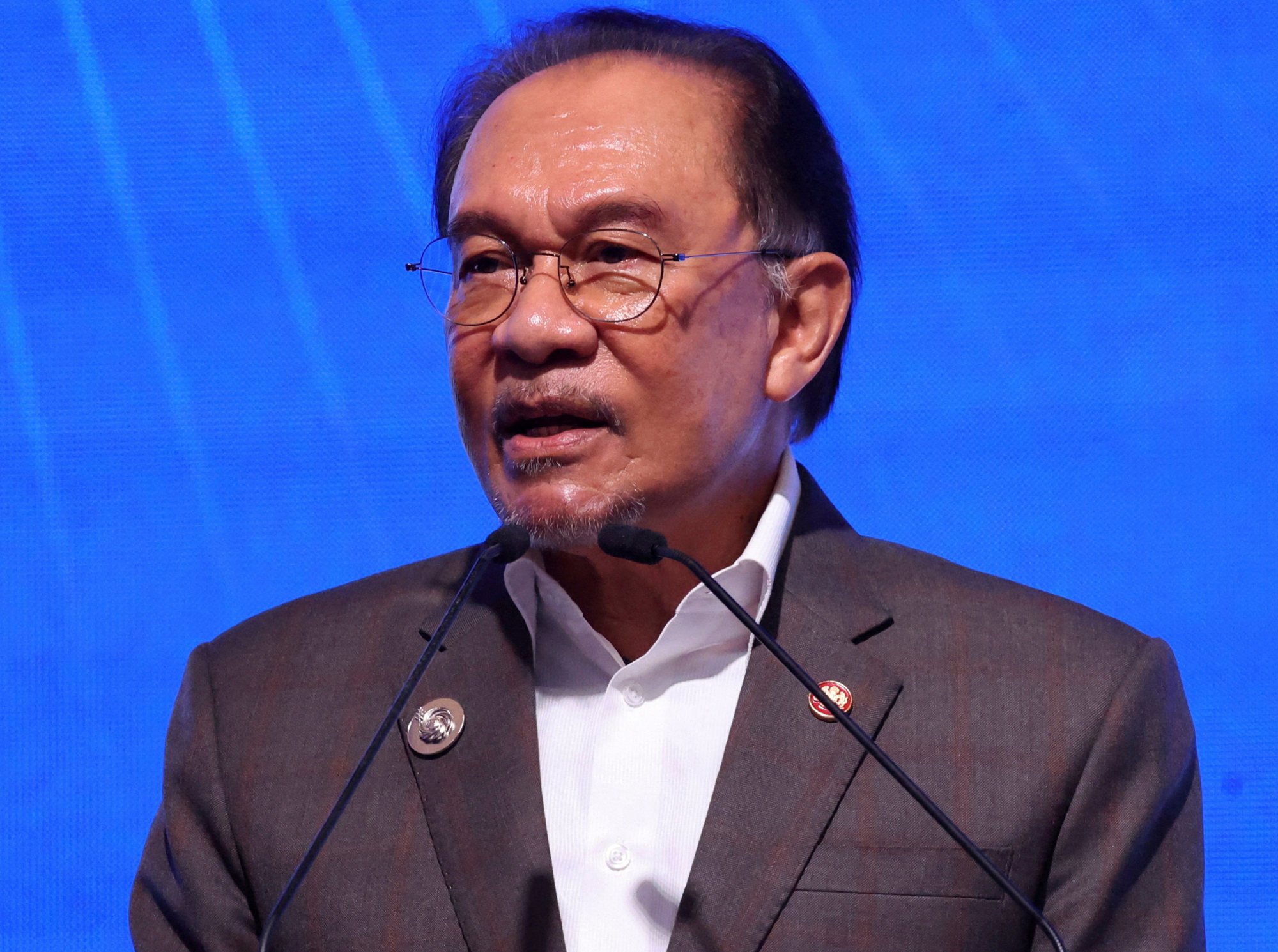Malaysia’s Anwar urged to seek MH17 reparations from Russia during Putin meet
Malaysia has a ‘moral responsibility’ to seek justice for the victims, even if it means jeopardising Russia relations, experts say

Malaysia’s government must seek reparations from Moscow over the 2014 downing of Malaysia Airlines flight 17, experts say, as Prime Minister Anwar Ibrahim begins a four-day visit to Russia, which has been declared responsible for shooting down the passenger jet, killing all 298 people on board.
The Council of the International Civil Aviation Organisation (ICAO) on Monday ruled that Russia was to blame for the tragedy, after the plane was shot down over eastern Ukraine by a Russian-made missile during a conflict between Ukrainian forces and pro-Russian separatists.
The ruling was announced just as Anwar left for Moscow on Tuesday for an official visit at Russian President Vladimir Putin’s invitation. The two leaders are scheduled to meet on Wednesday.
“This is not just about Malaysia’s right, but also our duty to seek justice,” said Farhatul Mustamirrah Mahamad Aziz, an international law expert with Universiti Teknologi Mara.
“That and our diplomatic ties with Russia are two different things. The downing of MH17 is about the loss of lives.”

MH17 was shot down by a Russian-made BUK surface-to-air missile while travelling over Ukraine’s Donetsk region on July 17, 2014.
It was en route from Amsterdam to Kuala Lumpur, ferrying passengers from 17 countries including 80 children and 15 crew. Those killed include 196 Dutch citizens, 43 Malaysians, 38 Australians and 10 British nationals.
The plane was travelling at 33,000 feet (10,060 metres) when it was struck, 1,000 feet higher than the restricted airspace imposed by Ukraine’s government after several military aircraft were downed in the preceding months.
The missile’s impact caused the plane to break apart in mid-air and likely killed everyone on board before hitting the ground, investigators said.
Russia has repeatedly denied any role in the downing of MH17, rejecting assertions by international prosecutors in 2023 that there were “strong indications” that Putin had authorised the use of the BUK missile system that shot down the plane.
The Kremlin on Tuesday dismissed the findings as “biased”, stressing that Russia was not party to the investigation into the incident.
The Dutch and Australian governments on Monday said they wanted ICAO to order Russia to enter into negotiations on reparations for the families of the victims.
Malaysia’s government has not commented on the findings. It is unclear whether Anwar will raise the matter during his meeting with Putin.
‘Russia must consent’
Malaysia had a “moral responsibility” to present a united front with Australia and the Netherlands in seeking remedies from Russia, even at the risk of jeopardising long-standing diplomatic ties with Moscow, said Awang Dzul-Hasriq Dharfizi, a senior lecturer at Universiti Utara Malaysia’s School of International Studies.
Malaysia, which established diplomatic ties with Russia in the 1960s during the Soviet era, imports Russian grain and arms and more recently leaned on Moscow for support to join the Brics grouping of developing nations.
Anwar is expected to negotiate more access to Russian wheat to shore up Malaysia’s domestic supply, in addition to potential new defence procurements, according to a Russian diplomatic source.
“Joining in on the demand [for reparations] might be perceived as ganging up on Russia, especially over the war with Ukraine,” Awang said.
“But if Malaysia remains passive it may undermine its own position as it will be seen as unwilling to uphold the rule of law and justice for the victims … it comes down to which option the government thinks best upholds Malaysia’s interests.”
The situation is further complicated by the fact that the findings by the ICAO Council are not binding.
Pursuing legal remedies through platforms like the International Court of Justice would likely lead to no conclusion if Russia continues to refuse to acknowledge any role in the tragedy, according to Farhatul.
“This is the trickiest. For any negotiation to begin, Russia must give her consent,” said Tunku Mohar Tunku Mohd Mokhtar, a political-science professor with the International Islamic University of Malaysia.
“What governments can do is persuade Russia to enter into negotiations, which seems to be near impossible.”